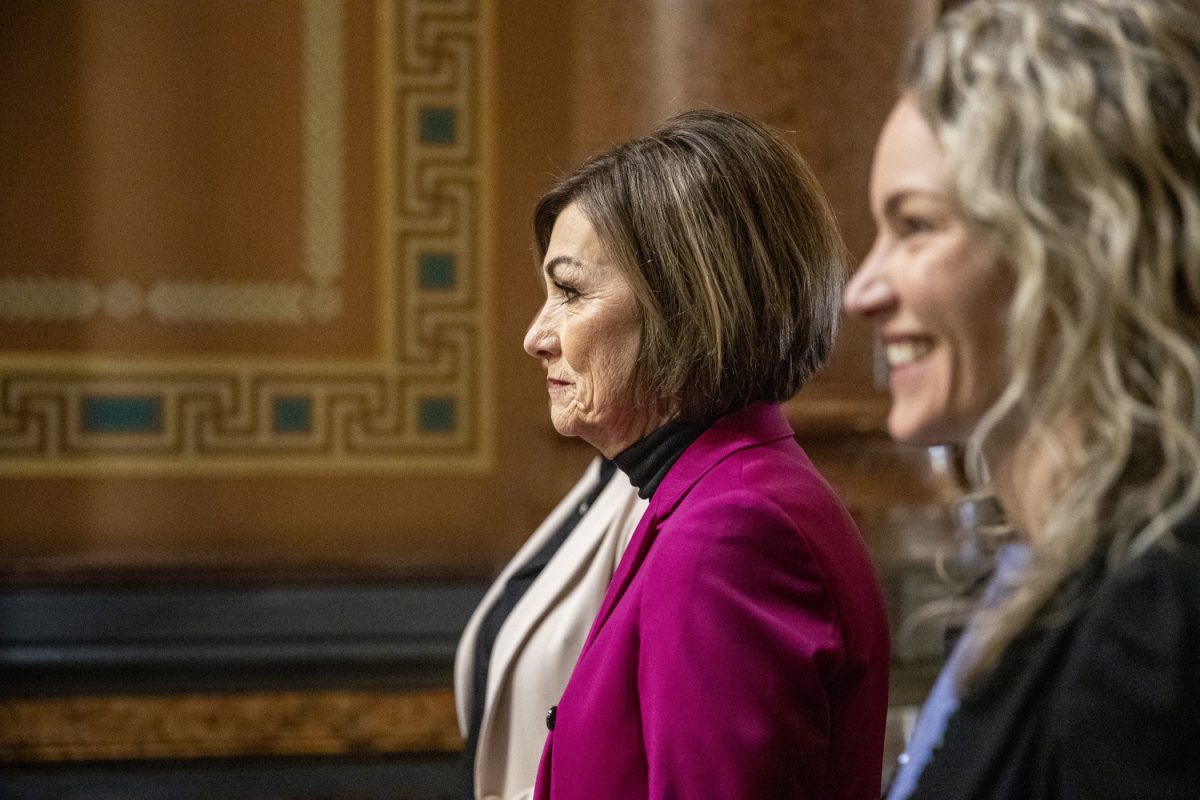Iowa lawmakers advanced a bill to provide $1 million in funds to the Double Up Food Bucks Program and alter which foods are eligible for food stamps Wednesday.
House Study Bill 216 would provide $1 million in supplemental funds from the Iowa Department of Health and Human Services’ general fund for fiscal 2026, but only if the HHS requests and is granted a waiver from the U.S. Department of Agriculture to limit eligible foods.
Iowa Healthiest State Initiative, which currently runs the Double Up Food Bucks Program, a health incentive program that allows supplemental nutrition assistance program, or SNAP, users to double their dollars, would match the $1 million from the state HHS for the program. However, the bill would also restrict what foods could be purchased with SNAP.
Under the bill, eligible food items would only include items from the following categories:
- Real eggs
- Real meat
- Real dairy
- Bread and grains
- All fruits and vegetables
- All cereals and hot cereals, including granola
- Peanut butter and nuts
- Pasta, rice, and legumes
All eligible foods may be fresh, frozen, canned, preserved, made into spreads, or juiced.
Iowa Senate lawmakers advanced a similar bill last week, but it did not include the restrictions on SNAP.
Lobbyists and Iowa advocates urged the SNAP restrictions be removed from the bill Wednesday, and lawmakers agreed there needed to be further discussion on the legislation.
Iowa Reps. Carter Nordman, R-Adel, and Shannon Lundgren, R-Peosta, supported moving the bill forward while addressing amendments, and the sole Democrat on the panel, Rep. Rob Johnson, D-Des Moines, opposed the bill.
Johnson spoke about his experience growing up in a household that relied on SNAP and how restricting what foods the program covers could harm families.
“I’ll never forget the night. I was 12 years old, I came home to the projects of Chicago on 29th and State Street, and there were hot dogs and pork and beans on the table because that’s all we could get with what my mother had,” Johnson said. “As a matter of fact, I have two older siblings and my mother. There were only two hot dogs on the table. So, you can imagine that those two hot dogs had to be split in half, and the beans were poured in portions so that each and every single person got something to eat.”
Johnson said he supports the Double Up Food Bucks program and wants to ensure the program can continue. He proposed making the portion about the program into a separate bill and moving that legislation forward.
Luke Elzinga, a policy and advocacy manager at DMARC Food Pantry Network, opposed the bill.
He said the legislation would effectively prevent two-thirds of the items in the grocery store from being purchased with SNAP benefits.
Elzinga also said the restriction leaves little room for religious or medical dietary requirements, food allergies, culture preferences, or even just children who are picky eaters.
He pointed to data by the Iowa Hunger Coalition, which revealed that only 42 percent of Iowans eligible for SNAP participate in the program — a near 17-year low.
“Research has found that a major reason people choose not to participate, even when they could really use the help, is stigma,” he said. “This bill would only make that stigma worse.”
Grace Recker, a medical student at the University of Iowa, said at first glance, the legislation doesn’t seem harmful. However, she said upon additional inspection, the bill could add additional barriers.
“As a soon-to-be family medicine physician, I am in full support of efforts to promote healthy eating and improve health outcomes for Iowans,” Recker said. “However, we must be realistic, and this bill does not do that.”
RELATED: The national egg shortage is hurting Iowa City’s most financially vulnerable residents
Recker said the average dollar amount SNAP participants receive per day to spend on food is not enough for families to “make every meal a healthy one.”
Data from the Center on Budget and Policy Priorities showed that in 2024, the average daily SNAP allocation per household member per day was $5.59 in Iowa.
Recker said the proposed restrictions withhold essential ingredients necessary to cook balanced meals. Lawmakers agreed that further adjustments need to be made to the bill.
Nordman approved passage of the bill through the panel and said the lawmakers will look into adding amendments, furthering discussion with state HHS, and continuing conversations about the bill.
Ludenberg said legislators need to look at ways to try to solve problems within the bill and recommended passage of the bill so lawmakers can continue to discuss.
“I’m happy to sign on to it, again, just knowing that it doesn’t necessarily solve all the problems that we’re facing,” Ludenberg said. “Maybe it creates new problems. We’re hearing that, but in order to keep the discussion alive and maybe come up with some really good solutions for the end of the year, I think we’ve got to have that vehicle, and so today, I’ll go ahead and sign off on it.”



